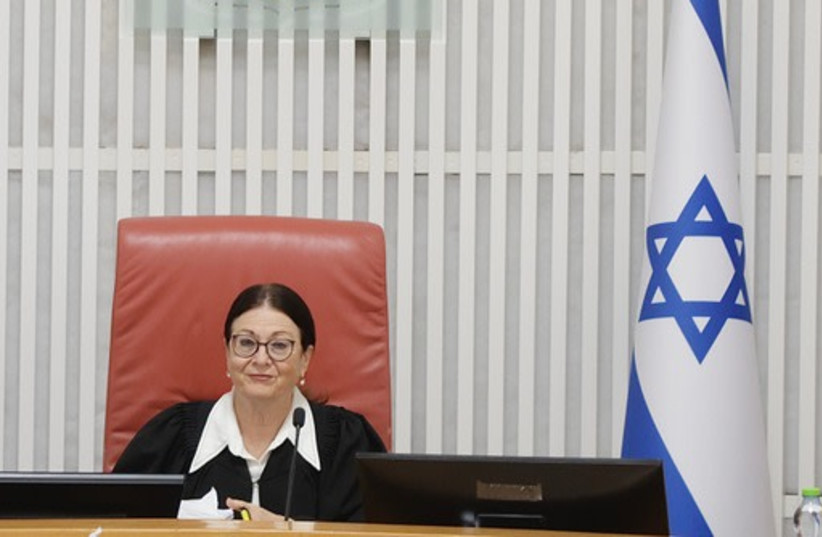Israel could split its standard of judicial review of reasonableness in two. Israel could, for some matters, adopt the standard of review of reasonableness used outside of Israel – and for other matters adopt the Israel specific standard of review of reasonableness
The government of Israel’s proposals in January, preceding the July 24 law annulling the standard of review of reasonableness, espoused one purpose: “to annul the unreasonableness grounds in Israeli administrative law as it has been shaped in the past decades, and to return administrative judicial review to grounds based on clear standards, and as accepted and understood around the world.”
The recent law did not annul the standard of review of reasonableness as accepted and understood around the world; the law annulled only the Israel specific standard of review of reasonableness. With that annulment, there is still scope of for Israeli judicial review on the ground of reasonableness, just not the same scope as existed before. If the Israeli courts, after the annulment, proceed to exercise judicial review under the rubric of reasonableness in the same way that it is exercised outside of Israel, that exercise would presumably accord with intent of the present legislation.
The July legislation applies to some decisions made by the government, ministers and the prime minister, and not other decisions made by the Knesset, or administrative agencies. Accordingly, the July legislation is now subject to judicial review under the Israel specific standard of review of reasonableness.
Reasonableness: How it's done in Israel and how it's done everywhere else
The differences between the Israel specific standard of review of reasonableness and that same standard of review outside of Israel are many and technical. In a nutshell, the standard for review of reasonableness outside off Israel considers how the decision is made and whether the process of arriving at the decision is reasonable, but not whether the decision itself is reasonable. The Israel specific standard of review considers whether the decision itself is reasonable.

The reason the Israeli judiciary developed a reasonableness standard of review unlike any other may be the absence of a constitutionally entrenched bill of rights. The Basic Law of Israel, as a statute of the Knesset, does not prevail over other laws. The standard of review of reasonableness ends up doing the work that the courts would have done, if they had constitutional rights to apply.
Viewed from this perspective, the standard of review of reasonableness outside of Israel does too little, because it leaves substantive international human rights violations and other matters of substantial international concern untouched – as long as the process of reaching the decisions is proper. The Israeli specific standard of review of reasonableness does too much, because it encompasses all decisions.
If the standard of review of reasonableness were to be split, the default position could be what appears to have been intended by the July legislation. That is, it could be the acceptance of the annulment of the Israel specific standard of review of reasonableness, and its replacement by the standard of review of reasonableness as accepted outside of Israel.
The default position could be determined not to apply in limited cases. A tenable limit, where the more hands-on Israel specific standard of review of reasonableness would apply, could be cases where violations of international human rights treaties to which Israel is a state party or other; or matters of substantial international concern – such as the Law of Return – are at issue.
Procedurally, the split could be engineered through a leave, or threshold, requirement. The threshold requirement to apply the Israel specific standard of review could be that the applicant raises a significant issue of public importance with a substantial international dimension.
This suggested threshold test is similar to the standard of review of reasonableness which would apply in the underlying application if the threshold test were met.
It is not unusual in judicial review outside of Israel for such a situation to arise. Courts outside Israel, where the test for a threshold application is similar to the test in the underlying application, have held that, in the threshold application, the applicant must show a likelihood of success in the underlying application.
Should the parties to the litigation now underway, which is challenging the legislation annulling the Israel specific standard of review of reasonableness, agree to a split in the application of the standard of review of reasonableness? If not, should the court impose a split?
Those are questions for Israelis to decide.
The writer is an international human rights lawyer based in Winnipeg, and senior honorary counsel to B’nai Brith Canada.
